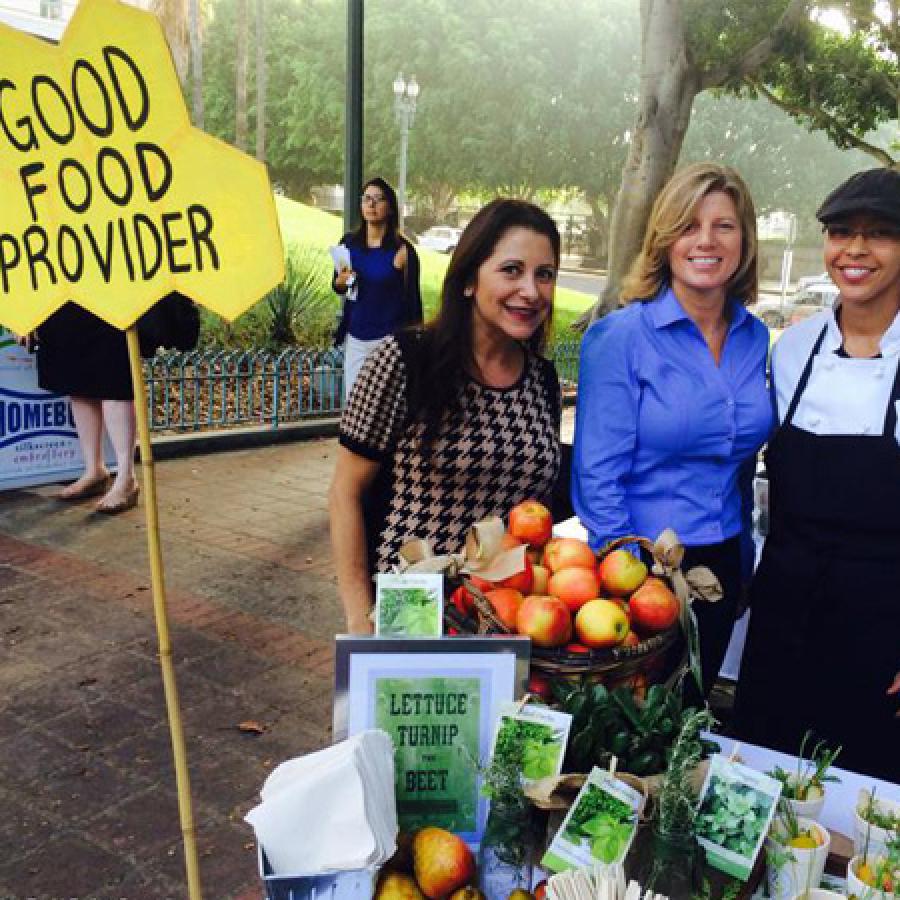Food Systems
The last few years have seen growing momentum to advance a just and equitable food system in the United States. Community leaders, advocates, and policymakers are asking questions about where our food comes from, who produces our food, how workers in the food system are treated, who owns the food businesses, what impact the food we eat has on our health, and whether healthy food is reaching all our communities in a fair and inclusive manner.
In 2019, PolicyLink launched the Equitable Food System Resource Guide, which illustrates the food system continuum -- aggregation and distribution, processing, production, food retail and healthy food business, and food recovery and waste recycling; and provides information on model policies and strategies, policy targets and decision makers, as well as examples of those working, across the country, to produce a more equitable food system.
Healthy Food Access Portal
Improving healthy food access in low-income communities and communities of color continues to be an urgent need with nearly 40 million people living in low-income areas with limited access to supermarkets (defined as the closest store being more than a mile away). The problem is particularly acute in low-income communities of color.
Together, with The Food Trust and The Reinvestment Fund, PolicyLink created the nation’s first comprehensive healthy food access retail portal.
From offering practical information on funding opportunities and innovative retail strategies, to resources for food system entrepreneurs and policy advocates, the portal provides a wealth of resources designed to improve healthy food access in communities, build local economies, and enhance public health.
Our collective work on the Portal was informed by the national campaign Healthy Food Financing Initiative.
Healthy Food Financing Initiative
In 2009, PolicyLink, along with the Food Trust, and The Reinvestment Fund initiated a national campaign, , to create a comprehensive federal response to address the limited and inequitable access to healthy foods in low-income communities and communities of color in both rural and urban America. Modeled upon/after impressive work that had occurred in Pennsylvania, the federal Healthy Food Financing Initiative (HFFI) improves access to healthy foods by addressing barriers related to financing and other critical resources for food related projects in underserved communities In addition to supporting projects in communities, the federal HFFI program has also provided seed funding for several state and regional level healthy food financing efforts that have emerged across the country. Learn more about the Healthy Food Financing Initiative on the food portal.
Equitable Food Procurement
A movement to purchase healthy, locally sourced and sustainably grown food is beginning to build momentum. Food procurement — how and from whom government institutions purchase food — is emerging as a powerful tool to strengthen and create an equitable local food system which impacts the health and well-being of all Americans while also revitalizing local economies across the country. By procuring sustainably produced, local food, communities can improve access to healthy food for low-income families and communities of color, support local entrepreneurship, and create high-quality local jobs that increase wealth, quality of life, and purchasing power for food, shelter, and health care.
The current landscape presents a critical window of opportunity to realign food policy initiatives toward equity through an equitable procurement policy. PolicyLink is actively working with a diverse range of partners in public health, labor and economic justice, environmental sustainability, and public and private sector to advance equitable procurement policy at local, state, and national levels — through a mix of education, research, convening, and policy advocacy. PolicyLink staff are working closely with the Center for Good Food Purchasing as part of a national effort to engage institutions in adopting the leading equitable purchasing framework, the Good Food Purchasing Program, which offers a tiered system centered on five core values: local economies, health, valued workforce, animal welfare, and environmental sustainability. Learn more about the Good Food Purchasing Program in this profile.
State and Local Policy Efforts
PolicyLink works in partnership with a range of local, regional, and state partners to advance equitable food system policies, through research, technical assistance, convening, and legislative advocacy. Food policy councils in particular serve as a promising approach to advocacy in jurisdictions across the nation. Learn more about food policy councils on the Portal or visit the Johns Hopkins Center for a Livable Future’s Food Policy Network Directory.
The Portfolio
Housing Futures & Land Justice

Infrastructure

Promise Neighborhoods Institute

The Convergence Partnership

Health Equity




